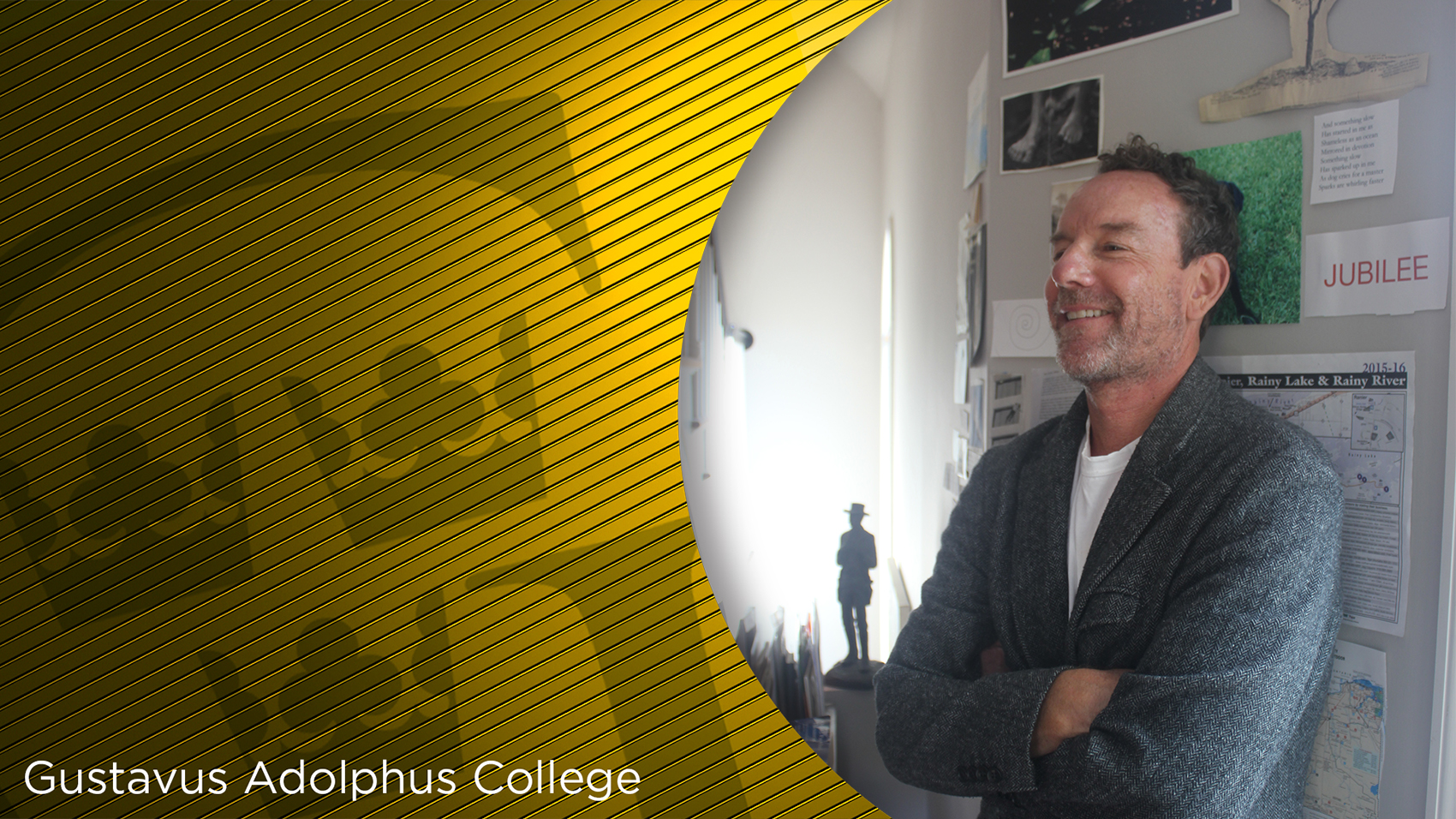Tom Trondson first thought about pursuing a career in writing when he was a student at Gustavus, but his life took a unique journey before that dream ultimately came true. A former Tennis and Life Camps coach, Trondson went on to teach tennis all over the world, get married, start a family, and earn his MFA in creative writing before his book was ready to be released into the world.
His novel, Moving in Stereo, combines his passions for tennis and writing into one emotional and meaningful read. Now that the book is out, Trondson took some time to answer the following questions about the journey from Gustavus graduation to book publishing.
Gustavus: Writing a novel is no easy task. What inspired you to start writing, and to keep going in order to finish the book?
Trondson: I first thought about writing as a profession at Gustavus. It was a turbulent time in my life. Tennis, always a place of refuge for me, was losing its hold. My family life was in a state of disrepair. Pain, anger, even disillusionment had swept through our household, something we were unwilling (or unable) to speak to. It was around this time I read Less Than Zero. The novel, about an alienated, drug-addled college student on Christmas Break in Los Angeles, hit home. Here was a young man with seemingly everything—money, looks, friends—who’s so numb he can’t act. Bright Lights, Big City was published soon after, another stylistic novel about America’s struggling youth. These books moved me at a time when little else did. I wondered if I might one day do the same thing—use language and emotion to create stories as these writers had. All that said, it wasn’t until 2000 that I made a career change.
Moving in Stereo took 15 years to complete. During that time I also got an MFA in Creative Writing, was a stay-at-home dad, and continued to develop my voice. This wasn’t my first foray into novel writing. What was different was my passion for the subject matter, and in particular my interest in my protagonist, Richard Blanco. I made a pact with myself to work Moving in Stereo to the end. That meant creating a cohesive, absorbing read which worked on many levels. Trust me when I say that many, many drafts were written!
 Gustavus: This novel is about so much more than just tennis. What was it like to blend an emotional novel with your favorite sport?
Gustavus: This novel is about so much more than just tennis. What was it like to blend an emotional novel with your favorite sport?
Trondson: There’s that saying in storytelling—write what you know. Well, that’s what Moving in Stereo became. I was well-versed in the game of tennis, having competed at a high level for most of my life. I was also fortunate to coach at Nick Bollettieri Tennis Academy when Andre Agassi and Monica Seles trained there in the late 80s. In my research, I found few novels about professional athletes. The tennis circuit intrigued me. So did exploring what it was like being inside the head of an athlete while thousands (or millions) tuned in. What went through a player’s head on match point with so much on the line? Why did so many athletes come close, but lose out in the end? At the same time, I wanted to demystify this idea that world-class athletes were gods we mere mortals genuflected to. Richard Blanco is a talented journeyman player searching for the same things we all are: acceptance, happiness, finding love. What I found interesting was looking at where those two elements converged—the life of the professional athlete, with all its indulgences and temptations, and the normal ups and downs all humans struggle with.
Gustavus: What advice would you give to an aspiring young writer in terms of process, motivation, or publishing?
Trondson: My advice to writers is pretty simple: find what works for you and stick with it. For me, that means writing every day. But be easy on yourself. Just because you’ve blocked out an hour of your day to write doesn’t always equate to material on par with Margaret Atwood. The creative process is about letting go, trusting your instincts, and making mistakes. I find joy in mini-revelations. I’m learning to cross-country “skate” ski this winter. Half the time I feel like a complete hack. But every so often I have a minor breakthrough. Find motivation in those little wins. It’s also healthy to step away from the work and let the material breathe. In the interim, start something new. I’d recommend taking a creative writing class at Gustavus or The Loft in Minneapolis. Lastly, enjoy the process. Writing is challenging work. Make sure it’s also soul-satisfyingly fun.
Gustavus: When you reflect on your time at Gustavus, what key lessons have informed your work as a coach and writer?
Trondson: From a coaching perspective, the late Steve Wilkinson played a big role in my early development. I spent two summers working at the Tennis & Life Camps in Saint Peter. Coach Wilkinson worked us hard. The staff taught thousands of juniors and adult players of varying abilities. Those two summers gave me a solid teaching foundation. Doors suddenly opened, including the chance to teach at a big-time junior tennis academy in Florida. The big takeaway for me was this: step outside your comfort zone, take chances, be open to where an experience might lead you.
For more information about Trondson, visit https://www.tomtrondson.com/.

Leave a Reply
You must be logged in to post a comment.